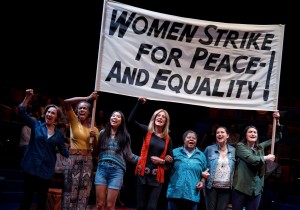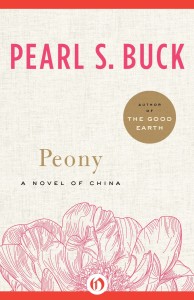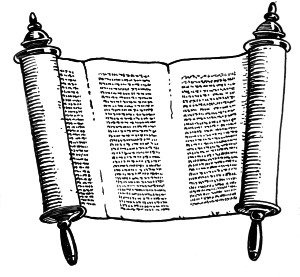The Lilith Blog
November 12, 2018 by Alicia Jo Rabins
#MeToo and the Women of the Bible

Esther Denouncing Haman, by Ernest Normand (1888)
Women telling intimate truths in the public sphere. Women raising their voices to demand they be treated fairly. Women challenging the leaders of the land to listen compassionately to their stories. We think of this as a contemporary phenomenon: the #metoo movement culminating most recently in allegations of sexual misconduct against our new Supreme Court justice, Brett Kavanaugh.
But in truth, women have been speaking up for a long time. Millennia, at least. We need to look no further than the stories of the Hebrew Bible.
Granted, this all-time bestseller reflects the values of its time; you can hardly turn a page without tripping over what we now call sexism, among other isms. However, the Bible also contains a number of stories of women speaking up for themselves and each other.
- No Comments
November 8, 2018 by Joan Roth
When Election Night Isn’t A Victory
While women broke many a glass ceiling this week, not every story had a happy ending. We were on the scene with Florida candidate Lauren Baer who ran a tough race in Florida, as the disappointing results came in.
“My campaign started with a sense of duty to defend the rights of my very sick mother and with a dream that I could help create a better world for my very young daughter,” she said in her concession speech. “But from the very start this campaign was about more than my mother and my daughter. It’s been about a dream that we all share…that children can be born into this world safe and wanted, that they can learn in good public schools and play in clean water and live free from senseless gun violence… Although our campaign must end tonight, our movement to restore faith in democracy will live on ….”
- No Comments
November 6, 2018 by Aileen Jacobson
Gloria Steinem’s Life, Onstage

(L-R) Joanna Glushak, Fedna Jacquet, Francesca Fernandez McKenzie, Christine Lahti, Patrena Murray, DeLanna Studi, and Liz Wisan in GLORIA: A Life by Emily Mann, directed by Diane Paulus, at the Daryl Roth Theatre. Photo © Joan Marcus.
As I entered a Midtown Manhattan building a couple of years ago, I spotted a slim familiar-looking woman with blond hair rushing out. Wide-eyed, I asked the two thirty-something security guards–one male, one female–“Was that Gloria Steinem?”
They replied, “Who’s Gloria Steinem?”
A few days later, I related my astonishment about the guards’ reaction to two other thirty-somethings–one male, one female–whom I know to be college-educated, media savvy and squarely in favor of equality for women.
They, too, asked, “Who’s Gloria Steinem?”
- No Comments
November 6, 2018 by Joan Roth
A Jeffersonville Rally with Congress Hopeful Liz Watson
At the Jeffersonville neighborhood rally, the atmosphere was infused with enthusiasm, not only for Liz Watson, Democratic candidate for Indiana congresswoman, but with candidates running for local and state offices. The rally was a home-grown Indiana Democratic event, hosted by the party for volunteers willing to take time out of their own schedules to hit door after door after door in North Jeffersonville.
A motivator, discussing the stakes in this election, quotes Martin Luther King: “An individual cannot start living until he/she rises above the narrow confines of individualistic concerns to the broader concerns of all humanity.”
- No Comments
November 1, 2018 by Laura Winnick
A Road Trip With Broad City’s Abbi Jacobson
Comedian and Broad City star Abbi Jacobson’s second book, I Might Regret This is a series of “essays, drawings, vulnerabilities, and other stuff” that describe a solo summer cross-country road trip after a devastating break-up.
Jacobson contemplates self and solitude, life stages and sleep stages, her queerness and creativity with the Broad City-style humor is designed to have its readers you smiling from ear to ear on the subway—if not lol’ing. I actually recommend reading this book in transit, so you can transpose your quirky travel-related anxieties into Abbi’s. Her neuroses range from how to plan bathroom rest stops to how to fall asleep in motel beds to how to deal with a list of “adult concerns” (“duvet covers and how often to wash them,” “figuring out how to learn how to meditate,” “overall health,” “Should I be smoking more weed?”) right up to what to do when the apocalypse comes; you know, those relatable worries of an East Coast Jewish millennial.
- No Comments
November 1, 2018 by Noa Kattler Kupetz
Jewish Women to Watch in Election 2018
With less than a week until Election Day, here’s an update on the Jewish female candidates profiled by Lilith in our Summer and Fall issues.
Alma Hernandez, Democrat • Candidate for Arizona’s 3rd District
There are two spots in the race, and Hernandez is polling in second behind Andres Cano (D). Though there is a Green Party candidate, no Republican candidate is running for the seats, virtually guaranteeing Hernandez’s win.
-If elected, Hernandez will become the youngest member of the Arizona state legislature, and first Mexican American Jewish woman in office.
- No Comments
October 31, 2018 by Sharrona Pearl
Let’s Vow to Stand With Those Who Are Standing With Us Now
At first I thought: we need space to mourn. Eleven of our own have been shot. We need to cry together. Alone.
We know, of course, that it is all connected, that the attacks on our fundamental humanity and right to exist are connected to all the other attacks on people’s fundamental humanity and right to exist, that people chanting “Jews will not replace us” in Charlottesville (some of them “very good,” according to our President) were empowered to shoot two shoppers at a Kroger in Kentucky because they were black. We know (of course we know) that others affiliated with those “very good people” sent pipe bombs to prominent Democrats and their supporters.
And we know in our bodies, in our broken hearts, in our historical memory and the memories of our grandparents whose bodies have never forgotten, and in the cries and shock of our children who also now know what it means to have someone want you dead for an identity that is at the very core of who you are. And then that one of those people’s ideological brethren went on to massacre 11 Jews in shul on shabbat morning during a bris. During a bris, for God’s sake.
- 1 Comment
October 30, 2018 by Kathryn Ruth Bloom
Rediscovering “Peony,” a Novel About Jews in China
 Writer Pearl Buck came by her in-depth knowledge of China from first-hand experience. Born in the United States, she was brought to China as an infant by her Protestant missionary parents. The author of more than 40 novels and numerous short stories and works of non-fiction, Buck is best-remembered for her Pulitzer Prize-winning novel The Good Earth (1931), a moving portrayal of the struggles of a Chinese family. She received the Nobel Prize for Literature in 1938.
Writer Pearl Buck came by her in-depth knowledge of China from first-hand experience. Born in the United States, she was brought to China as an infant by her Protestant missionary parents. The author of more than 40 novels and numerous short stories and works of non-fiction, Buck is best-remembered for her Pulitzer Prize-winning novel The Good Earth (1931), a moving portrayal of the struggles of a Chinese family. She received the Nobel Prize for Literature in 1938.
Less known is the fact that Buck wrote fiction about Jews in China, too. Because I’m always interested in narratives about Jewish life in other times and places, I approached her 1948 novel Peony with particular interest. At the time of publication, Peony was hailed as an insightful study of the decline of a small Jewish community in Kaifeng, China, in the mid-1800s. But although Buck’s historical facts may be accurate—and the dangers of communal disappearance through assimilation resonate in our own time—I was struck by her reliance on ethnic stereotypes. What I found was an ambiguous underlying attitude toward Jews and Judaism. What is disturbing about it is the vague sense of pleasure in the disappearance of Jewish life that forms an unstated subtext to her narrative.
- 1 Comment
October 29, 2018 by Liat Katz
Carrying the Torah for Those We Lost in Pittsburgh
 On Saturday, as I was sitting in synagogue during Shabbat services, someone began locking the doors of our shul. The shootings had just happened in Pittsburgh, and there was reason to fear that it could happen anywhere.
On Saturday, as I was sitting in synagogue during Shabbat services, someone began locking the doors of our shul. The shootings had just happened in Pittsburgh, and there was reason to fear that it could happen anywhere.
I have had mixed feelings about my relationship to Judaism and my specific relationship to worship, but Saturday’s events strengthened my resolve. As I heard the news of the eleven people who lost their lives, I thought about those people worshipping as I was before being gunned down.
Beyond the communal and cultural aspects of being Jewish, which I have always been proud of, I have been thinking about the meaning of Jews reading Torah—for the eleven that died, for Jews around the world on that same Saturday morning, and for me and my fellow Jews in a small synagogue outside of Washington, DC.
- 2 Comments
October 29, 2018 by Karen Paul
To My Friend, Whose Celebration Was the Day of a Massacre
We were at the mikveh on Friday, nine of us, seven celebrants and two attendants who witnessed our joy as you marked your birthday and a moment of pause in your high profile, high impact job. It was a soul-filled morning, saturated with reflections on some relationships that spanned decades, and some that were bright and new but still profound.
You had never been to the mikveh, the ritual bath that cleanses and prepares Jews for many roles – that of sexual preparedness and procreation, that of convert, that of celebrant. Preparing for immersion strips you down to your barest place, with not a spot that can come between you and the waters. The waters which are rain waters, waters that have been a part of this earth for millennia, touching your skin, soothing your heart, marking your passage.
- No Comments
 Please wait...
Please wait...